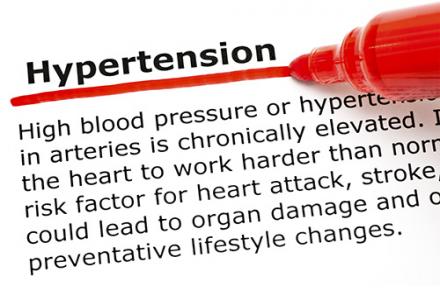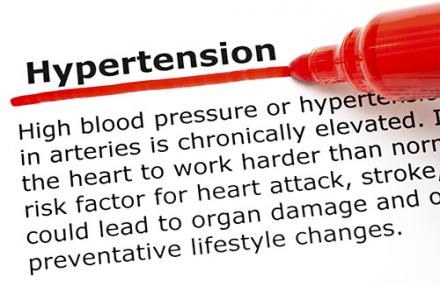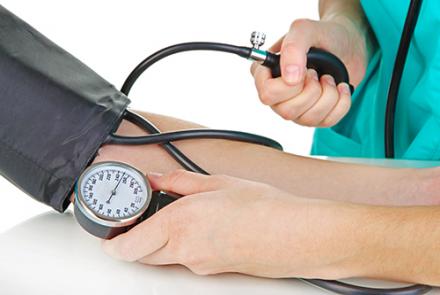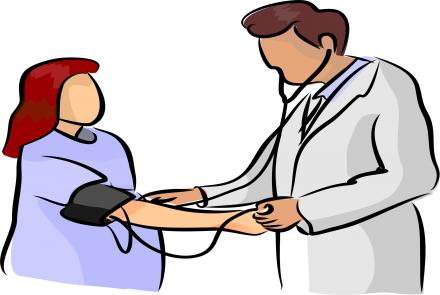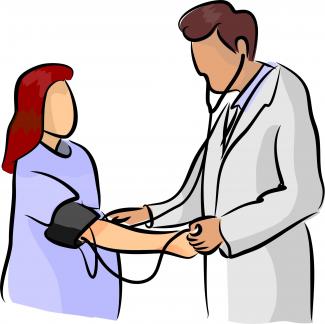
Hypertension is the most common medical issue encountered during pregnancy, complicating 2-3% of pregnancies. This percentage has been increasing in certain populations. Read more here
Hypertension or high blood pressure refers to the amount of force exerted by the blood against the walls of the arteries. A person's blood pressure is considered high when the readings are greater than 140 mm Hg systolic (the top number in the blood pressure reading which shows the force of the blood in the arteries as the heart beats) or 90 mm Hg diastolic (the bottom number shows the force of blood in the arteries as the heart relaxes between the beats). Read here for more details on hypertension or high blood pressure.
Hypertension is the most common medical problem encountered during pregnancy, complicating 2-3% of pregnancies.
Categories of high blood pressure in pregnancy
According to the National High Blood Pressure Education Program Working Group on High Blood Pressure in Pregnancy, the categories are:
• Chronic hypertension: Women who have high blood pressure (over 140/90) before pregnancy, early in pregnancy (before 20 weeks), or carry it on after delivery. But because high blood pressure usually doesn't have symptoms, it might be hard to determine when it began.
• Gestational hypertension (transient hypertension of pregnancy or chronic hypertension identified in the later half of pregnancy): This terminology is preferred over the older but widely used term "pregnancy-induced hypertension" (PIH) because it is more precise. It develops after week 20 in pregnancy without the presence of protein in the urine or other signs of organ damage and goes away around six weeks after delivery. Some women with gestational hypertension may go on to develop preeclampsia.
• Preeclampsia and eclampsia: Both chronic hypertension and gestational hypertension can lead to this severe condition after week 20 of pregnancy. Eclampsia is a condition when seizures appear in a pregnant woman with high blood pressure (greater than 160/110) and proteinuria (protein in the urine). Signs and symptoms of Preeclampsia/eclampsia usually go away after one to six weeks of delivery,depending on the severity of the condition.
• Preeclampsia superimposed on chronic hypertension: This condition occurs in women who had chronic high blood pressure before pregnancy. Symptoms include high blood pressure and protein in the urine and can lead to serious health complications for both mother and baby if not treated quickly.
Another category by the Society of Obstetricians and Gynecologists of Canada (SOGC) in 2008 released revised guidelines that simplified the classification of hypertension in pregnancy into 2 categories, preexisting or gestational, with the option to add "with preeclampsia" to either category if additional maternal or foetal symptoms, signs, or test results support this.
What is Preeclampsia
Preeclampsia is a condition that typically starts after the 20th week of pregnancy and is related to increased blood pressure and protein in the mother's urine. It affects not only the placenta but also the mother's kidney, liver and brain. When preeclampsia causes seizures, the condition is known as eclampsia - the second leading cause of maternal death.
Previously, preeclampsia was only diagnosed if a pregnant woman had high blood pressure and protein in her urine but experts now know that it's possible to have preeclampsia without protein in the urine. Preeclampsia involves many body systems and evidence of associated organ dysfunction may be used to make the diagnosis when hypertension is present. This includes the presence of a low blood platelet count (thrombocytopenia), impaired liver function, the development of new kidney dysfunction, fluid accumulation in the lungs (pulmonary edema), and/or new-onset brain or visual disturbances, which will be lacking in gestational hypertension.
Causes of preeclampsia
Physicians don't know the exact cause of preeclampsia, but the general belief is that it may be due to a poorly developed placenta that doesn't circulate blood normally.
Or it could be due to an immune system response in which antigenic exposure from the father triggers an immune response in the mother and then the child, resulting in narrowing of the blood vessels throughout the body, causing higher blood pressure and other problems.
Effects of high blood pressure in pregnancy
Pregnant women with high blood pressure may have healthy babies without serious problems, but in some patients it can be dangerous for both the mother and the foetus. Risks include the following:
• It can harm the mother's kidneys and other organs
• If the placenta doesn't get enough blood, baby might receive less oxygen and fewer nutrients, which lead to slow growth, low birth weight or preterm birth. Prematurity can lead to breathing problems for the baby.
• Having preeclampsia increases risk of future heart and blood vessel (cardiovascular) disease both mother and baby. This risk is even greater if patients had preeclampsia more than once or had a premature birth.
Are you at risk of developing hypertension during pregnancy?
Risk factors include the following:
• A first-time mom
• Women whose sisters and mothers had PIH or Gestational hypertension
• Women carrying multiple babies
• Women younger than age 20 or older than age 35
• Women with a history of diabetes mellitus, hypertension and renal disease
• Women who developed high blood pressure or preeclampsia during a previous pregnancy, especially if these conditions occurred early in the pregnancy
• Obesity
• Placental abnormalities like placental ischemia
• Women who have been pregnant before but now have a first pregnancy with a different man
Symptoms include :
• Severe headaches that do not respond to nonprescription pain medicine
• Changes in vision, including temporary loss of vision, blurred vision or light sensitivity
• Upper abdominal pain, usually under your ribs on the right side
• Nausea or vomiting
• Decreased urine output
• Shortness of breath, caused by fluid in your lungs
• Sudden rapid weight gain
• Swelling (edema) — particularly in your face and hands
• Bleeding from a cut or injury that lasts longer than usual
Your obstetrician may diagnose the following:
• High blood pressure
• Excess protein in your urine (proteinuria) or additional signs of kidney problems
• Decreased levels of platelets in your blood (thrombocytopenia)
Can hypertension during pregnancy by prevented
If you are planning a pregnancy and do not suffer from hypertension, you can take some of the following precautions:
• Monitor your blood pressure to ensure it is under control
• Make lifestyle changes such as limiting salt intake, participating in regular physical activity, and losing weight, if you are overweight
If you are planning a pregnancy and have high blood pressure, discuss your pregnancy with your doctor. Keep the following in mind:
• Keep your blood pressure under control
• If you take medicines for high blood pressure, ask your doctor whether you should change the dosage or stop taking them during pregnancy. Experts currently recommend avoiding angiotensin-converting enzyme (ACE) inhibitors and Angiotensin II (AII) receptor antagonists during pregnancy. These are the drugs used in controlling high blood pressure; other blood pressure medications may be alright for you to use. Do not, however, stop or change your medicines unless your doctor tells you to do so.
• Make the necessary lifestyle changes to keep blood pressure under control. For instance, weight loss, eating less salt and exercise (if recommended by the doctor)
• Discuss with your doctor how hypertension might affect you and your baby during pregnancy, and what you can do to prevent or lessen problems.
Managing your pregnancy with hypertension
• Keep your prenatal appointments: Visit your obstetrician regularly. Your weight and blood pressure will be checked at every visit, and you might need frequent blood and urine tests. Depending on your condition, frequent ultrasounds might be used to track your baby's growth and development. Foetal heart rate monitoring might be used to evaluate your baby's well-being. Your doctor may also recommend monitoring your baby's daily movements.
• Take your blood pressure medication as prescribed: Your doctor will prescribe the safest medication at the most appropriate dose.
• Stay active: Follow your doctor’s recommendations for physical activity.
• Eat a healthy diet: Choose foods low in sodium. For an overall healthy eating plan, follow the DASH (Dietary Approaches to Stop Hypertension) diet. The DASH eating plan includes whole grains, poultry, fish and nuts and has reduced amount of salt, fats, red meat, sweets and sugared beverages.
• Know what's off-limits: Avoid smoking, alcohol and drugs. Talk to your doctor before taking any over-the-counter medications.
• Limit your salt intake
• Drink at least 8 glasses of water a day
• Increase the amount of protein you eat, cut down on fried foods and junk food
How can a Vegetarian increase protein intake
• Get enough rest. Rest, lying on your left side to take the weight of the baby off your major blood vessels.
• Elevate your feet several times during the day
• Avoid beverages containing caffeine
• Your doctor may suggest you take prescribed medicine and additional supplements
• Increase prenatal checkups
Managing pregnancy with preeclampsia
Your doctor will recommend the following check-ups:
• Frequent monitoring of blood pressure
• Blood tests to check for kidney damage and assessment of uric acid in the blood, which is often the earliest sign of preeclampsia.
• Urine test to check the protein content in the urine, which is one of the signs of kidney damage caused by preeclampsia.
• Creatinine clearance test to check kidney function. This requires both a blood sample and a 24-hour urine collection
• Weight measurement as rapid weight gain is a sign of preeclampsia
• If eclampsia is observed, the doctor may advise CT scan or MRI to check organs and internal body structures and an electroencephalogram (EEG) to measure the brain’s electrical activity.
• If preeclampsia is severe, baby’s health is also monitored. The following tests may be recommended:
- Electronic foetal heart monitoring to record baby’s heart rate
- Foetal and Doppler ultrasound to check the baby, the placenta and the amount of amniotic fluid
- Sometimes an amniocentesis is used for preterm delivery to check if baby’s lungs are mature enough for birth
Is it safe to take blood pressure medication during pregnancy
Any medication taken during pregnancy can affect a baby. Some medications, which are used to lower blood pressure, are considered safe during pregnancy, eg methyldopa and nifedipine. Others, such as angiotensin-converting enzyme (ACE) inhibitors, angiotensin receptor blockers (ARBs) and renin inhibitors, are generally avoided during pregnancy.
Sometimes Hydralazine and Labetalol – intravenous medicines - are used in hospitals for quick lowering of severe high blood pressure during pregnancy. Lowering blood pressure too much or too fast can reduce blood flow to the placenta, causing problems for the baby. So medicine is reserved for preventing severely high blood pressure levels that may be life-threatening to you or your baby.
The risk of heart attack, stroke and other problems associated with high blood pressure are more during pregnancy, which are dangerous for baby, too.
If you need medication to control blood pressure during pregnancy, your doctor will prescribe the safest medication at the most appropriate dose. Take the medication exactly as prescribed. Don't stop taking the medication or adjust the dose on your own.
Researchers are working on the ways to prevent preeclampsia, but so far, no clear strategies have emerged. If you had preeclampsia in a previous pregnancy that resulted in delivery before 34 weeks gestation or you had preeclampsia in more than one previous pregnancy, your doctor might recommend a daily low-dose aspirin - between 60 and 81 milligrams - beginning late in your first trimester.
Treatment
Pregnant women with or without hypertension have to be closely monitored so as to quickly identify preeclampsia and its life-threatening complications. Monitoring of blood pressure is important throughout the pregnancy with or without preeclampsia.
If the mother has high blood pressure or preeclampsia, treatment depends on the due date. If close to due date and the baby is developed enough, the obstetrician may want to deliver the baby as early as possible to avoid complications. If severe hypertension develops during pregnancy, blood pressure medications are provided to the patients till the due date or the baby is developed enough for delivery.
An appropriate plan for labour and delivery includes selection of a hospital with provisions for advanced life support of newborn babies.
Treatment for mild preeclampsia
For mild preeclampsia that is not rapidly getting worse, patient is advised to cut down on their level of activity, monitor how they are feeling and visit the doctor regularly for check-ups and tests.
Treatment for moderate to severe preeclampsia
For moderate or severe preeclampsia that is rapidly getting worse, the patient may be advised bed rest in hospital where they can be closely monitored and given medication. Severe preeclampsia and seizures is treated with magnesium sulfate. If you are near delivery and have severe preeclampsia, your doctor will plan to deliver your baby as soon as possible.
Treatment for life-threatening preeclampsia
If your condition becomes life-threatening, the only treatment options are magnesium sulfate to prevent seizures and delivering the baby.
If you are less than 34 weeks pregnant and the delivery can be delayed by 24 to 48 hours, you will likely be given antenatal corticosteroids drugs to speed up the baby's lung development before delivery to lower the risk of breathing problems after birth.
Delivery
A vaginal delivery is usually safest and it is tried first if the patient’s condition is stable.
If preeclampsia is rapidly getting worse or foetal monitoring suggests that the baby cannot safely handle labour contractions, a caesarean section (C-section) delivery is needed.
After childbirth
With moderate to severe preeclampsia, risk of seizures (eclampsia) continues for the first 24 to 48 hours after childbirth. To prevent that magnesium sulfate may be given for 24 hours after delivery.
In cases of gestational hypertension, the mother’s blood pressure returns to normal a few days after delivery. In the case of chronic high blood pressure, it will take more than 6 weeks to return to normal levels under physician’s observation.
Breast-feeding is encouraged for most women who have high blood pressure, even those who are taking medication. But it is best to not breast-feed right after taking medication – do so after some time has lapsed.
To keep blood pressure under check, maintain ideal weight, eat a variety of fruits and vegetables, exercise regularly, and don't smoke.
Take charge: Your Action plan
• 6 month clinical review
• Clinical assessment, which may include:
- Blood pressure check
- Weight
• Lifestyle modification: cessation of smoking, weight reduction, low-salt diet, physical activity, and moderate alcohol consumption are successful in reducing overall cardiovascular disease risk.
• Manage your blood pressure and blood sugar to keep kidneys in good shape. Blood glucose control significantly reduces the risk of developing chronic kidney diseases. Over time, high blood pressure can narrow and thicken the blood vessels of the kidneys. The kidneys are able to filter less fluid, and waste builds up in the blood. Over time, the kidneys may fail altogether. When this happens, medical treatment (dialysis) or a kidney transplant may be needed.
Supporting team
- Obstetrician
- Perinatologist
- General practitioner (family doctor)
- Certified nurse – supervised by an obstetrician
- Nutritionist
- Fitness expert
- Other specialists as required

